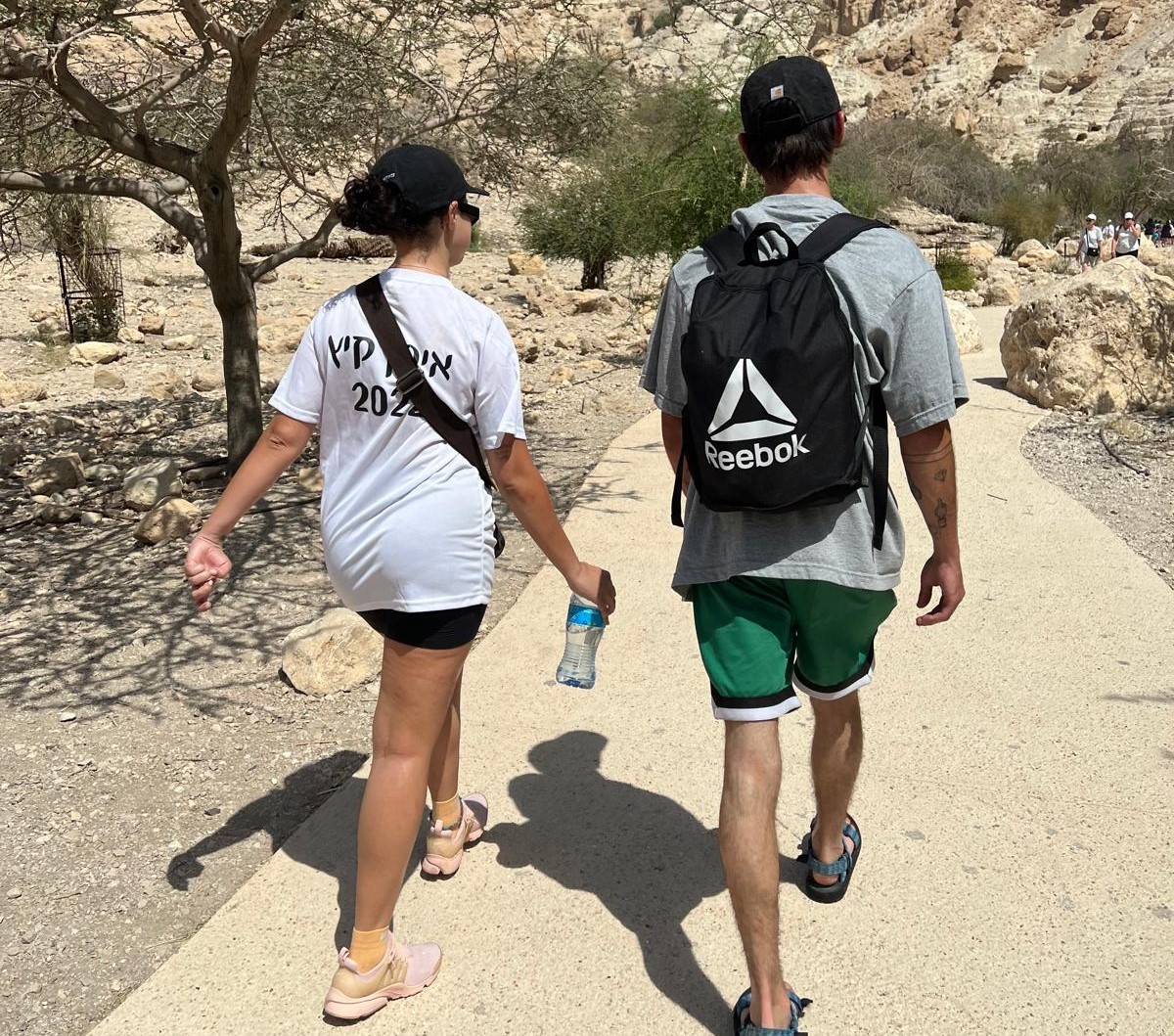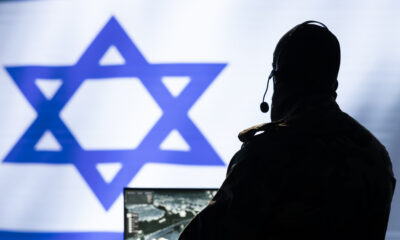
Israel

Life after the apocalypse: couple returns to Be’eri
Eight months ago, a 21-year-old South African and her Israeli boyfriend were just two young lovers cherishing their time together in serene Be’eri, a co-operative kibbutz 5km from the Gaza Strip.
Their world was shattered on 7 October in the Hamas Sabbath massacre. The presence of Hamas terrorists forced them into a small safe room for 15 hours where they huddled together with his younger brother and cat. Gun-wielding terrorists who had breached Be’eri brutally murdered, ransacked, burnt, and destroyed everything around them. They had no way of comprehending the extent of the life-and-death struggle that took place outside their safe room, which ignited a major war that still rages.
Many close friends of Leora Baskin and Yonah Kahn, 23 – not their real names for the sake of their safety – died that day. Dozens of homes, including Kahn’s parents’ house, were burnt to a smouldering cinder.
“We lost 10% of the community that day,” Kahn told the SA Jewish Report.
“There are still 11 hostages from Be’eri in Gaza, seven of them aren’t alive. I know them all well,” he said.
Be’eri , a largely secular, peaceful, left-wing farming community, was one of the worst affected as Hamas terrorists penetrated Israel from Gaza and attacked communities in the south.
The couple recently visited South Africa to tell their survival story. Brought here by Chabad of Savoy, Chabad of Strathavon, and the South African Zionist Federation, this is the first time in 18 months Baskin has seen her parents and brother, who live in Johannesburg.
“Israel is living but not living,” she told the SA Jewish Report.
“Young people are going to nature festivals and taking back the dancing after the massacre at the Nova festival but nothing is the same. Everyone is dealing with a lot,” said Baskin, who grew up in Johannesburg and made aliya three years ago.
Baskin said that weekend started much like any other – Shabbos with Kahn’s family and a braai planned for the following day.
At the crack of dawn, they awoke to what sounded like a heavy rainstorm, only to realise it was the familiar sound of rockets from Gaza and loud interceptions, something they had become used to.
They scurried into their safe room in their pyjamas at the sound of the red alarm, still unperturbed.
“Something was different though. It was louder and heavier, the doors and windows were shaking” said Baskin.
Said Kahn, “My brother, who lives 50m away, sounded anxious. I decided to go check on him, shirtless and with no shoes, leaving Leora half asleep in the safe room.”
It soon became clear to the brothers that they weren’t safe as terrorists were now shooting outside. They called frantically for help. In the meantime, Baskin struggled to close the heavy metal window of the safe room.
“Through the window, I could see neighbours with guns getting into formation, very unusual in a kibbutz,” she said.
Kahn’s close friend, who left the Nova festival earlier when the rockets from Gaza started, went back to Be’eri to try help protect the community.
He helped to secure the area, allowing the brothers to dash back to Baskin.
“I knocked over some pot plants and a bicycle to make it seem like my place had been ransacked,” said Kahn. This is what they believe may have saved them from attack.
Inside, they grabbed whatever they could find to protect themselves, a nun chuck stick and three kitchen knives, before sealing themselves inside the safe room.
“We only had three bottles of water between us,” said Baskin.
Kahn panicked and battled to breathe. “I shut down. I told Leora and my brother to read the WhatsApp messages and check on everyone. My brother was very brave. He stayed next to the door but after a while, I saw that he also wasn’t coping so I somehow managed to take over from him,” said Kahn.
Cut off from the outside world, with only the distressing news from WhatsApp messages, their imaginations ran wild as screams and gunshots were heard outside.
Hours dragged by.
“It was all so confusing. I would drift off to sleep and then wake to more gun shots and noise,” said Baskin. They heard footsteps on the roof and believed them to be terrorists.
She tried to call her parents in Johannesburg but it being Shabbos, didn’t manage to get hold of them. Eventually they were tracked down and alerted.
They stopped hearing from Kahn’s parents, and grew worried. “We could only imagine what they were experiencing, having told us earlier that they were ok but that their house was on fire,” he said.
It turns out they were rescued after 11 hours huddling under a wet blanket battling to breathe from the smoke.
“It’s a miracle they survived, rescued three hours before us by strangers from another kibbutz who came to help,” said Kahn.
Finally, after what seemed like an eternity, they were rescued at about 20:30 by members of the Israel Defense Forces.
They didn’t believe it was the army because they had read messages about terrorists pretending to be soldiers.
“There were many soldiers outside. I was still holding a knife, totally terrified. People were dressed as they had woken up, shirtless, in pyjamas, only it was 15 hours later,” said Kahn.
“The soldiers arranged us in two lines, it was surreal like a scene out of a horror movie. The smell was unbearable, everything was smoky. We started walking, and Yonah shielded my eyes from the carnage. We were told to look down and walk.”
The kibbutz was evacuated to Netivot, where they were reunited with Kahn’s parents. “We hugged. It was very emotional. Yonah’s dad was still in his underwear, he had no shoes on,” she said.
“We saw a nine-year-old boy that we knew who told us his whole family had been killed. That was an impossible moment,” said Baskin.
After a few hours at Netivot, survivors were taken to hotels in the Dead Sea.
“We reached The David Hotel at 04:00 and I remember my brother wishing me happy birthday. I had forgotten my birthday was on 8 October,” said Kahn.
Five months afterwards, the couple finally found the strength to return home. With therapy and Shelby their emotional-support Labrador, they were among the first to return after spending time in Tel Aviv.
“Nothing is the same. It’s still a warzone. We can hear and feel every blast,” said Baskin.
“We chose to go back because someone has to help rebuild. Many don’t have that choice,” said Kahn. “At first, I felt like my life had ended. We had all lost way too much to go back. Now I see it as my duty. I’ve come to understand that anything that doesn’t kill you is meant to make you stronger.”










